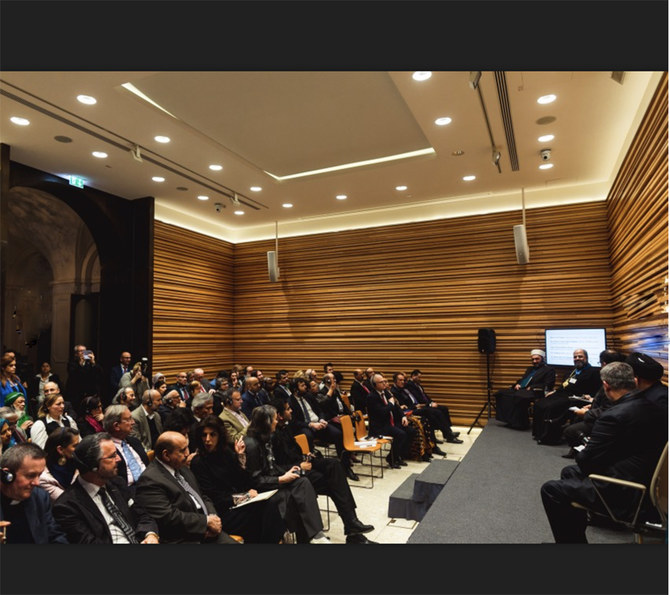JEDDAH: Different religious and human traditions can lead to a cohesive international community, and tolerance can replace hate rhetoric through responsible dialogue centers such as the King Abdullah bin Abdul Aziz International Center for Interreligious and Intercultural Dialogue (KAICIID), its secretary-general has said.
Faisal bin Muammar said that global dialogue, through activating the role of religious and human values in dealing with international issues, has become one of the most important axes in the global forums, for its impact on relations between individuals, leaders and religious institutions of different religions and religious affiliations with policymakers everywhere, in particular international bodies and organizations.
Support
Commenting on international support for KAICIID, Bin Muammar said: “I can confidently say that we have succeeded, with the support of Saudi Arabia and the participation of Spain, Austria and the Vatican, in achieving a global achievement through the KAICIID’s initiative for dialogue between followers of religions and cultures.
“The initiative aims at promoting humanitarian partnerships and consolidating coexistence under the umbrella of shared citizenship. We have, in fact, witnessed various patterns where we can utilize efforts of different initiatives specialized in humanitarian and religious values to assist policymakers,” Bin Muammar said.
He said that the center was able to create partnerships with countries, global institutions and religious leaderships to convince the international community that religious values should be considered part of the solution, not the origin of the problem, especially, he added, as 84 percent of the world’s population had a religious identity or tradition.
Bin Muammar said that people associated with religion are potential advocates for tolerance and respect. “For that reason, KAICIID invests in promoting interreligious dialogue to unite different religions in securing social cohesion. That outcome is an essential contribution toward human security and inclusive development.”
KAICIID requested policymakers and the international community to adopt this approach, which would contribute to building security, peace and coexistence.
The secretary-general said that religious and human values have become a major part of the foundation’s local and global mission.
“With its strong and effective presence in global forums, the KAICIID has moved to the forefront of dialogue and cultural institutions. This could have not happened if it was not Allah’s help, the support of the founding members and the board consisting of Muslims, Christians, Jews, Buddhists and Hindus,” he said.
He said that one factor that had helped KAICIID become a globally leading interreligious and intercultural dialogue center was that its 50-member advisory forum represents about 15 religions and beliefs.
“Moreover, the center’s representatives come from 30 countries. In addition, the center has various platforms such as the refugee platform, the Muslim Jewish Council of Europe, the dialogue platform in Central Africa, the Muslim-Christian dialogue platform in Nigeria, the Myanmar platform for dialogue between the Muslims and the Buddhists, the dialogue platform for dialogue and cooperation between Muslims and Christians and the fellows programs in five continents,” he said.
Social cohesion
The KAICIID International Fellows Program brings together leaders and educators from Buddhist, Christian, Hindu, Jewish, Muslim and other religious backgrounds from around the world for training in dialogue facilitation, intercultural communication and promoting social cohesion by KAICIID experts. The program equips fellows with the skills to educate their students and communities about interreligious dialogue so they can become facilitators and leaders in the dialogue and active peace advocates in their communities.
Bin Muammar said that KAICIID’s achievements included joining the UN’s advisory council, which consists of 50 institutions worldwide.
“In the UN recent elections, the secretary-general of KAICIID was elected to co-chair the Faith Advisory Council of the United Nations Interagency Taskforce on Religion and Development together with Ms. Tarja Kantola, Chair of Finn Church Aid’s board of directors,” he said.
He said that the multi-religious coalition — Religions for Peace — (RfP) had elected the KAICIID secretary-general as an honorary president at its 10th World Assembly in Lindau, Germany.
“The choice is a recognition of KAICIID’s mandate and my team’s efforts to bring peace through dialogue,” he said. “We cannot achieve peaceful and cohesive societies without organizations like RfP, a very important partner for KAICIID since its establishment in 2012.”














